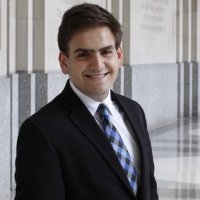
A blog of the Brazil Institute

At the twelfth Group of Twenty (G20) Summit in Hamburg, Germany last week, the heads of government and central bank presidents from nineteen key economies plus the European Union convened to discuss the current state of global affairs. Between violent protests against the perceived mishandling of policies to alleviate poverty, combat hunger, and other issues; and the media’s focus on the palpable tension between U.S. President Trump and his counterparts, Brazilian President Michel Temer managed to escape scrutiny during his trip abroad even as domestic tensions mounted.
Originally, it was unclear whether Temer would even participate in the Summit, yet his decision on July 3 to attend appeared to be an attempt at providing a façade of “administrative normalcy.” Temer had decided to cancel his G20 trip in late June, and the last-minute nature of his reversal was reflected clearly in the G20 agenda distributed to the press that did not indicate his presence. It originally only included Temer’s Minister of Finance, Henrique Meirelles, but organizers subsequently revised the program on the website.
During his three days in Hamburg, Temer had few scheduled meetings with other world leaders, giving the impression that the labor reform and investigations back home preoccupied him more than his relationships abroad. On July 7, right as the Summit was to begin, Temer stressed in an interview in front of his hotel that, “No economic crisis exists in Brazil,” citing the first quarter 2017 GDP figures that showed some growth after a prolonged two-year recession. He also asserted that employment is rising, that industries are growing, and that agribusiness is expanding. Afterwards, Temer added that the current political confusion was in no way upsetting the country’s economy, which analysts have partially confirmed. Foreign investors, in particular, seem unperturbed, yet the country itself may not have fully escaped its former economic troubles.
While Temer stood united with the eighteen other leaders in admonishing Trump’s stance on climate change, the Brazilian president’s most notable appearance at the Summit came as a major gaffe that later circulated across social media. After a committee discussion, he recorded a video in which he spoke about his government’s efforts to “bring back unemployment” [rather than employment]. With little to no apparent editing, the video was posted to Temer’s Twitter account, and it quickly went viral due to the poor phrasing.
Temer’s lackluster performance comes at an unfortunate time for his administration, which struggles to retain its footing domestically and abroad. The Brazilian media coverage centered largely on his controversies back home, with corruption allegations overshadowing his high-profile meetings with other state leaders. In addition, the few meetings he did have appeared to muster little attention from news outlets who continued to report on Brazil’s fragile situation.
After the Summit ended, Temer returned to Brazil with his presidency in an even more precarious position as new problems continue to emerge. Rather than divert attention away from Brazil’s issues, his G20 presence underscored the extent to which Brazil’s repute has changed internationally and how disconnected the reality of Temer’s presidency is from its original goals.
A president serves as a country’s highest international representative, and Brazil looked to Temer to push its interests at the G20. Yet to many Brazilians’ amusement and, likely, the administration’s dismay, the video in which the president misspoke was the primary takeaway of his trip to Germany.
Author

Explore More in Brazil Builds
Browse Brazil Builds
They're Still Here: Brazil's unfinished reckoning with military impunity


